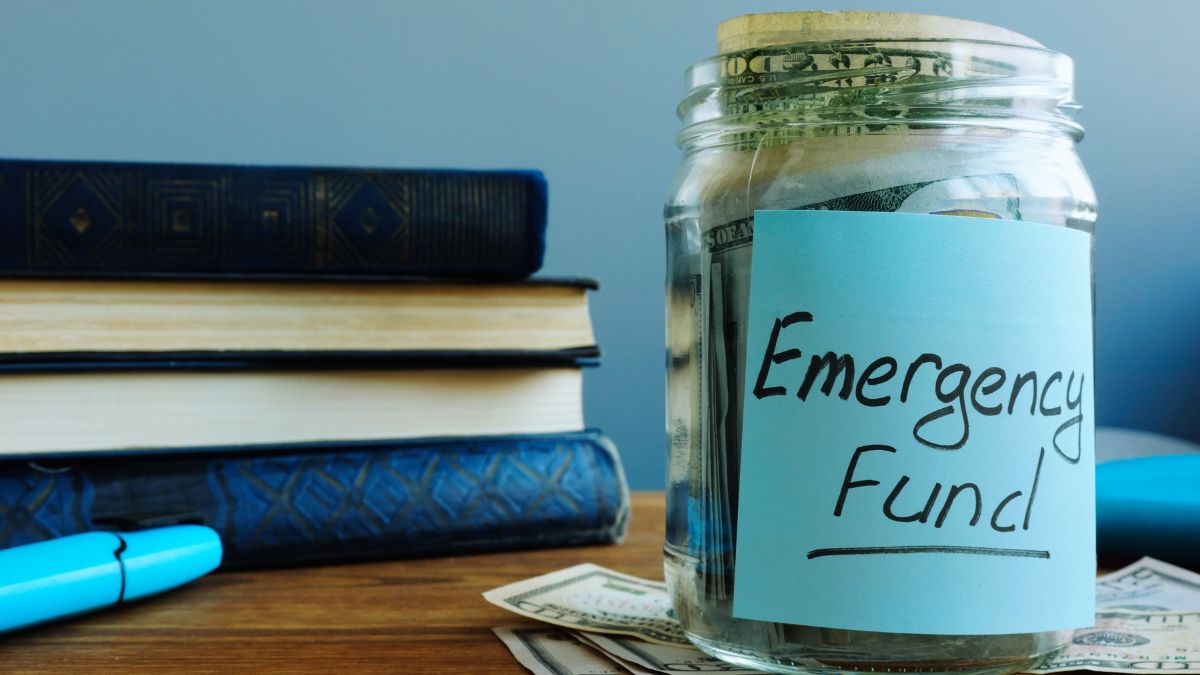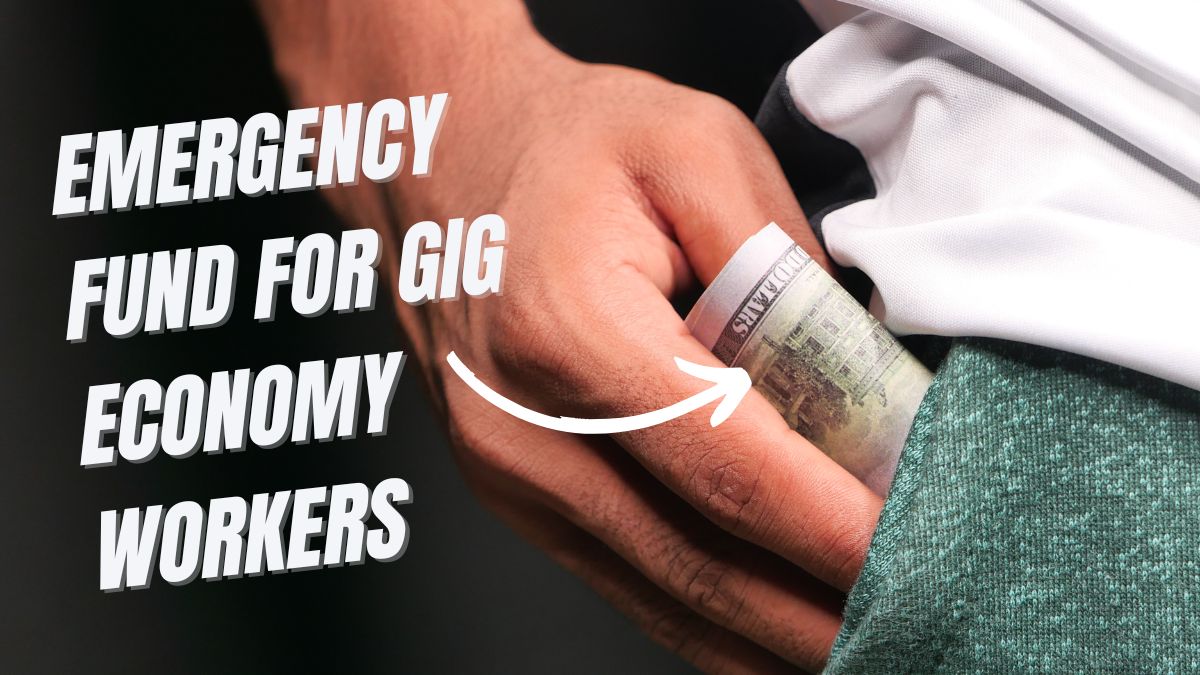The gig economy offers freedom and flexibility, but it also comes with unpredictable income. In one month, you might have a flurry of gigs, in the next, you might have a dry spell. That’s why gig workers need a strong emergency fund. It’s your safety net, your financial cushion, and your peace of mind.
Why Gig Workers Need a Strong Emergency Fund?

The financial challenges that gig workers face differ from those faced by traditional employees with steady paychecks and benefits:
- You can see wild fluctuations in your earnings depending on the demands of your clients, platform algorithms, and your own availability.
- You may not receive paid sick leave, vacation time, or retirement benefits from your employer.
- A car repair, a breakdown of equipment, or even a health issue can take a toll on your finances.
- Cash flow crunches may be caused by delayed payments from some platforms or clients.
- Tax Burdens: You’re responsible for paying self-employment taxes, which can be a significant expense.
If you have an emergency fund, you will never have to resort to debt or compromise on your financial goals in the long run.
How Much Should You Save?
The general rule of thumb is to have three to six months’ worth of essential living expenses in your emergency fund. In light of gig workers’ inherent income instability, larger cushions may be needed, perhaps 6 to 12 months’ worth.
Here’s how to calculate your target amount:
-
Calculate Your Monthly Expenses:
-
List all your essential expenses, including rent/mortgage, utilities, groceries, transportation, insurance, and minimum debt payments.
-
Add up these expenses to determine your total monthly cost of living.
-
-
Multiply by Your Target Months:
-
Multiply your total monthly expenses by your desired number of months (e.g., 6, 9, or 12).
-
Example:
Let’s say your monthly expenses are $2,000. If you aim for a 6-month emergency fund, your target amount would be $2,000 x 6 = $12,000. If you aim for 12 months, it will be $24,000.
Where to Keep Your Emergency Fund?
Make sure you have easy access to your emergency fund, but don’t dip into it for non-emergencies. Consider these options:
- Accounts with high interest rates: These accounts offer a greater return than traditional savings accounts.
- Money Market Account: Similar to savings accounts, money market accounts often offer competitive interest rates and limited check-writing privileges.
- Certificates of Deposit (CDs): CDs offer higher interest rates, but your money is locked in for a specific term. They’re suitable for a portion of your emergency fund that you don’t anticipate needing immediately.
- Avoid Investing: Your emergency fund should not be invested in stocks, bonds, or other volatile assets. The goal is safety and liquidity, not high returns.
Building Your Emergency Fund: Step-by-Step
Building an emergency fund takes time and discipline. Here’s a practical approach:
- Do not underestimate the power of small contributions. Aim to save a fixed amount each week or month, even if it’s just $25 or $50.
- Make your emergency fund automatic by setting up automatic transfers from your checking account each payday. This takes the guesswork out of saving.
- Keep track of your spending with a budgeting app or spreadsheet.
- You can increase your gig income by taking on more clients, diversifying your services, or raising your rates.
- Make the most of windfalls by allocating a portion to your emergency fund whenever you receive bonuses, tax refunds, or other unexpected income.
- Review your subscriptions, dining habits, and other discretionary spending to cut unnecessary spending. Look for ways to reduce expenses.
- Put your emergency fund at the top of your priority list. Treat it as a non-negotiable expense. Pay yourself first, just like you would pay your rent or utilities.
- Create a dedicated account for the emergency fund. This account will only be used in case of real emergencies. This helps avoid dipping into the fund for non-emergencies.
What Qualifies as an Emergency?
A true emergency is an unexpected and unavoidable expense that threatens your financial stability. Examples include:
- Job loss or significant income reduction
- Medical emergencies
- Car repairs
- Home repairs
- Major appliance breakdowns
What Doesn’t Qualify as an Emergency?
- Vacations
- New gadgets
- Non-essential purchases
- Dining out excessively
Maintaining Your Emergency Fund
Having built an emergency fund, it is important to maintain it.
- As soon as you have used your emergency fund, replenish it as soon as possible.
- Make sure your emergency fund target amount is adjusted as your income and expenses change.
- The purpose of an emergency fund is to cover emergencies. Don’t touch it unless you absolutely have to. Avoid dipping into it for non-essential expenses.
You can also read:
- How to Set Short-Term Financial Goals for Success (2025)
- 10 Steps to Financial Freedom: Easier Than You Think
Gig Economy Specific Tips
- Plan your taxes: Set aside some of your income to pay estimated taxes. This will prevent a large tax bill from depleting your emergency fund.
- Insurance: Consider disability insurance and other relevant insurance policies to protect yourself against unexpected events.
- Diversify Income Streams: Don’t rely on a single platform or client. Diversifying your income sources can help mitigate income volatility.
- Networking and Skill Building: Invest in networking and skill-building opportunities to increase your earning potential and expand your client base.
Conclusion
For gig economy workers, an emergency fund is a necessity. It provides financial security, reduces stress, and allows you to focus on your work without worrying about unexpected expenses. Follow these tips for building a strong emergency fund and navigating the ups and downs of the gig economy.

